With manufacturers claiming the overall sugar confectionery market is static at best, they have spent the year concentrating on ways to re-engage with consumers. And the consensus on how to achieve this has been to remove some of the guilt factor and focus on some of the positives.
The result? Labels with 'sugar-free', 'reduced sugar', 'added calcium', 'no trans fats', 'no artificial colours or flavours' have been popping up on many of the products in the fixture. The trend looks set to dominate the next 12 months, too.
But although manufacturers talk of a general downturn, figures from TNS reveal that only sugar candy has suffered, down 4.6% year-on-year to £204m. Meanwhile, sugar fruits (up 12% to £467m), with Haribo arguably the key innovator, sugar mints (up 5.8% to £198m) and sugar toffees (up 10.7% to £70m) have had a storming year.
Graham Walker, sales communications manager at Nestlé Rowntree, says Rowntree has grown by 7.2% in the past year. The reason, he says, is down to it switching to real fruit juices in its Get Real campaign.
He puts the success of some of its brands in a slower sugar confectionery market down to the "power of the healthy balance lifestyle". Permissibility is the key word, says Walker. "It's all about balanced lifestyles: credit and debit. If you've been good in the day, you feel you can treat yourself."
Polo has done well, he adds, after the British Dental Health accreditation went on packs of its sugar-free line earlier this year.
New product development for Nestlé Rowntree has taken a back seat to its health developments and communicating the Get Real message this year, with the exception of its new Hanging Bags.
NPD is not expected to be a focus in the year ahead either, says Walker, unless specific gaps are identified within main consumer trends. "We won't be launching new products for the sake of it," he says. "New is still important in the category, but that doesn't have to mean new products; changing them can have an amazing impact. We all need to innovate and renovate."
Similarly Chewits owner Leaf UK is focusing on one issue this year: the health debate. "It's no surprise that a lot of manufacturers are looking at this area. We've cleaned up our act on Chewits, getting rid of hydrogenated vegetable oils and artificial flavours and colours. We're creating healthier snacks," says MD Tony Camp.
The new recipes came into effect in January and the company has spent the rest of the year working out how to build on those steps. "How can we have a healthy range of something that is inherently unhealthy? They will never be apples, but there are plenty of consumers out there that want the choice," adds Camp.
This year, Leaf launched its Red Band brand, a range of chews, hard-boiled sweets, jellies and gums, which offer different sugar confectionery to adults, children or both. "It's focused on reduced sugar," explains Camp. "Sugar-free is not great for kids as it can have a laxative effect. It's fine with adults as they are better at controlling their intake. The products aimed at kids contain no fat, use fruit juice and have calcium and vitamins added. For adults and family packs, it's about sugar-free but also more about pleasure."
Chewits has been stable year-on-year, says Camp. "Customers recognise we have done something about health and Red Band range comes on top of that. Our products are among the healthiest. At the end of the day people aren't fools. Mum knows what's good and bad, but she can still buy something tasty for the kids. It's not poisonous."
Despite the great health debate, Camp is confident that there is no risk of the traditional confectionery sector disappearing. "Standard ranges can thrive alongside healthier versions - consumers still love them."
One of the main focuses going forward for Leaf will be on how to best communicate with mum. With new Ofcom regulations on TV advertising to kids set to come in, it has made the move to pull TV ads targeting kids. But it will not turn its back on TV altogether and is finalising concepts for a new campaign next year for its Red Band range.
Although the market has been flat, Haribo sales director Rory Goodwin says it has managed to limit any effects of a downturn. "There is no growth coming out of the total market. However, when you look at individual categories, there is good news."
According to Goodwin's figures, the gums and jellies market has risen by 6.3% in general and by 12.2% in value for Haribo. "The trend in the past few years has been for softer products. People's tastes have changed."
He also says that Haribo has grown 18.4% in value and 16.7% in volume in the soft and chewy market. Haribo's Starmix is now worth £30m, he claims.
Haribo will begin removing artificial colours from its products from October, and is exploring how to reduce sugar, which should start coming through next year. Goodwin is realistic about the limits of the health drive. "It's difficult to come up with healthy confectionery; it's hypocritical. We promote portion control," he says.
However, although he says health is something of which everyone should be aware, it does not have to be the main driver in the category: "Brands that have been around for years will still be around in five to ten years."
But while brands may have longevity, some of the more old-fashioned generic sweets that had fallen out of favour in recent years could be making a comeback. Although a relatively small market, nostalgia is still a key driver in the market for adult sweet lovers. Retailer Julian Graves has brought out a new range of nostalgic wrapped and crystallised sweets, called 'A bit of what you fancy!' in its 300 stores.
Nestlé Rowntree has had a hit this year with an old brand. Walker says Tutti Frutti has grown by 191%.
Own label and branded sugar confectionery supplier Tangerine is also hoping to get in on the nostalgia trend. Helen Sears, brand manager, believes that its Princess marshmallows brand is a potentially a huge growth area.
Cadbury Trebor Bassett is predicting a return to growth in the sugar category will come through healthier sweets. This category will drive the market forward, says Mike Tipping, CTB's head of customer relations. "So far we have not seen much in market success for healthier products, but we believe that they are an important part of sugar confectionery's future."n







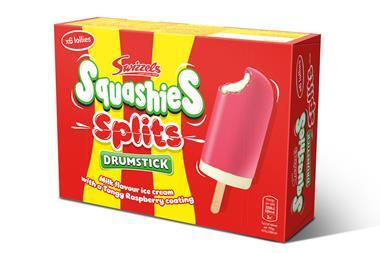
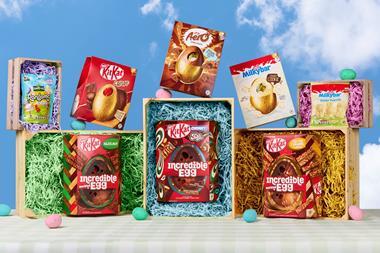

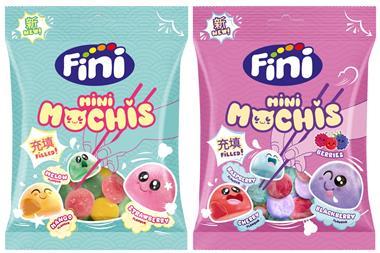


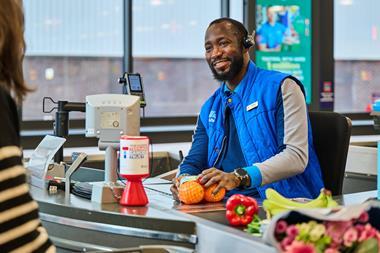


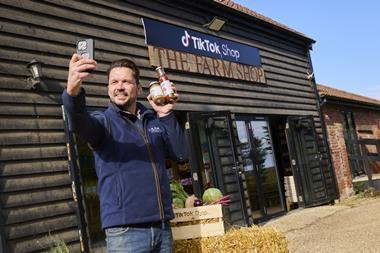

No comments yet